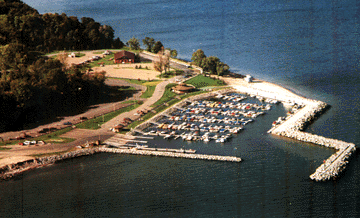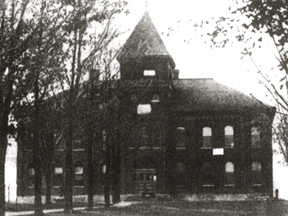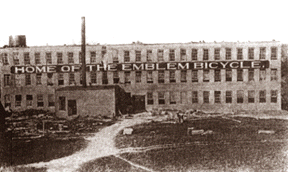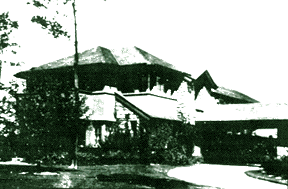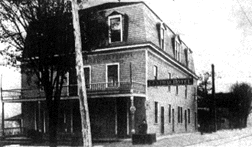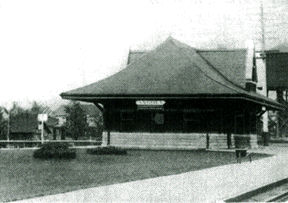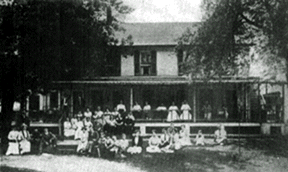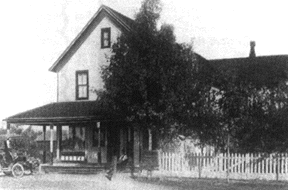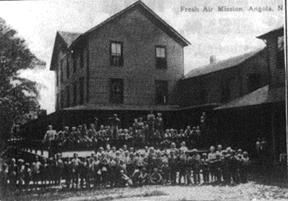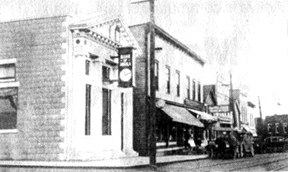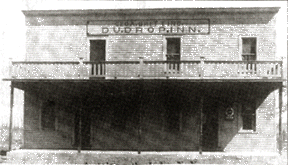The first known settler in the Town of Evans arrived in 1804. He was Joel Harvey, and
he built his home near the mouth of 18-Mile Creek. This waterway was a natural route for
moving west, and Harvey took advantage of this, opening a tavern named the Frontier
House in 1806. The first permanent settlers began arriving in 1809. Aaron Salisbury,
William Cash, and James Ayer were some of the prominent settlers whose families arrived
at this time.
Evans was originally a part of the Town of Eden, but in March of 1821 the Legislature of
New York State proposed and passed an act "erecting" the Town of Evans. The Town was
named for David ElIicott Evans. David Evans was one of three senators representing
Western New York at this time. He was also a clerk and a land agent with the Holland Land
Company, and he was admired by the settlers for his friendliness and fairness in business
dealings.
In the early years the center of activity was the area known as Evans Center The first
Town Hall, the first mills and stores were located here. Other settlements grew in parts of
the town known as North Evans, Pontiac, East Evans (Jerusalem Corners), and Derby. The
area known as Brant was annexed and formed in 1839. Later years saw the addition of
communities in Lake Erie Beach and Highland.
In 1852 the Buffalo and State Line Railroad laid tracks and built a depot about a mile
south of Evans Center This caused a shift of activity to the village first called Evans Station
and then Angola. Much of the surrounding land was still covered with timber and the railroad
shipped lumber to the growing city of Buffalo. The railroad also led to a growth in local
business and the establishment of industry such as the Emblem Bicycle Company, a
notable part of the town's past.
Another part of the Town's early growth was related to its location on the lake. Many of
the area's wealthy families built summer homes along the shore. Deacon Joseph Bennett
and other property owners began taking in "boarders", and the entire area became well
known as a place to spend the summer.
Two of the Town's leading citizens were Willis H. Carrier who was born in Evans in 1876
and went on to become known as the "Father of Air Conditioning" and Pius Schwert who
played professional baseball from 1914-1917 (He was a catcher for the New York Yankees)
and was elected to Congress in
1938.


